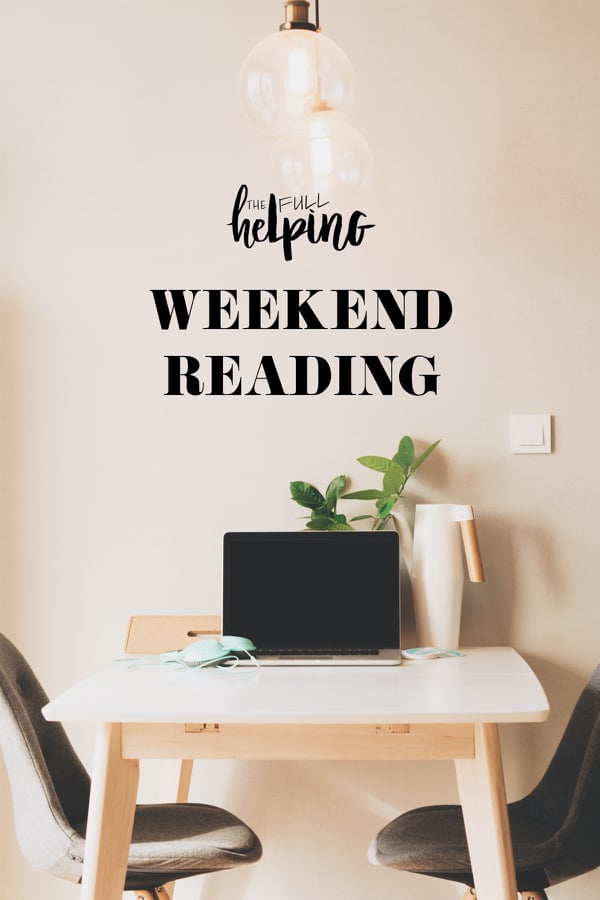
I was chatting with a friend—a new friend, but she already feels like an old friend—a few days ago, and it became clear that we’ve visited some similar emotional and psychological territory in the last few years. “There’s so much goodness right now,” she exclaimed (and I think I’m paraphrasing a little). “But at the same time, all of this stuff is coming up that I need to reckon with.”
She paused, and said, “I guess that’s life?” We laughed.
I’ve been thinking about her words ever since. It sounds like such a simple truth, the fact that life is patchwork. Loss and abundance coexist, along with pleasure and suffering, struggle and ease, sticky challenges alongside pockets of flow.
Yet it’s funny how readily I tend to compartmentalize my experience into good and bad categories. I do this with stuff that’s happening in the present moment, and even more when I look back on my past: I identify good years and bad years, happy times and rough ones.
Of course we can all recall particular periods in our lives that stood out as being especially hard or painful, for whatever reason, just as we can probably point to times that were especially joyous or full. But I’m all too quick to sanitize the “good” times—choosing not to remember what was painful or problematic—and to write off the “bad” ones.
I thought about this a lot on my recent trip to DC. I’ve fallen into the habit of saying that my time there was very tough, very difficult, which is true in many ways. My post-bacc itself was difficult, and there were other things: personal losses, family losses, health challenges.
Being back in the city reminded me, though, of how vivid and alive my time in DC was. The struggles that came along with the post-bacc education were met with a lot of curiosity and even some thrilling acquisition of knowledge; feeling adrift and far from home meant that I sought out new friendships, which was exciting.
I felt as if I’d left a part of myself behind in New York, and the transitions between the two cities were always a little disharmonious. But being in a new place meant letting go of a lot of components of my identity that had become stale and no longer felt authentically like “me”; I was able to grow and evolve in ways I might not have back home.
It’s easy to look back on those four years and remember the all-nighters, the poignant breakup, or the feeling of panic and grief I had when my mother endured a shocking loss over two hundred miles away from me. But how can I forget all of the excitement? And why would I want to?
My mind loves to categorize things. It feels like a relief when I do it, as if I’ve found my bearings. But categorizing encourages me to rewrite my history in such a way that I forget a lot of details. It leaves me with a story that’s neater than the unedited one, but which exists at the expense of consciously forgotten memories.
The more I grow, the more I want to hold onto all of those memories, the painful and bittersweet ones included. I’m starting to realize how precious they all are, and how precious is their coexistence. That’s life, as my friend said.
Wishing you a week that’s full and whole and spacious. Here are my reading and recipe picks from the past week.
Recipes
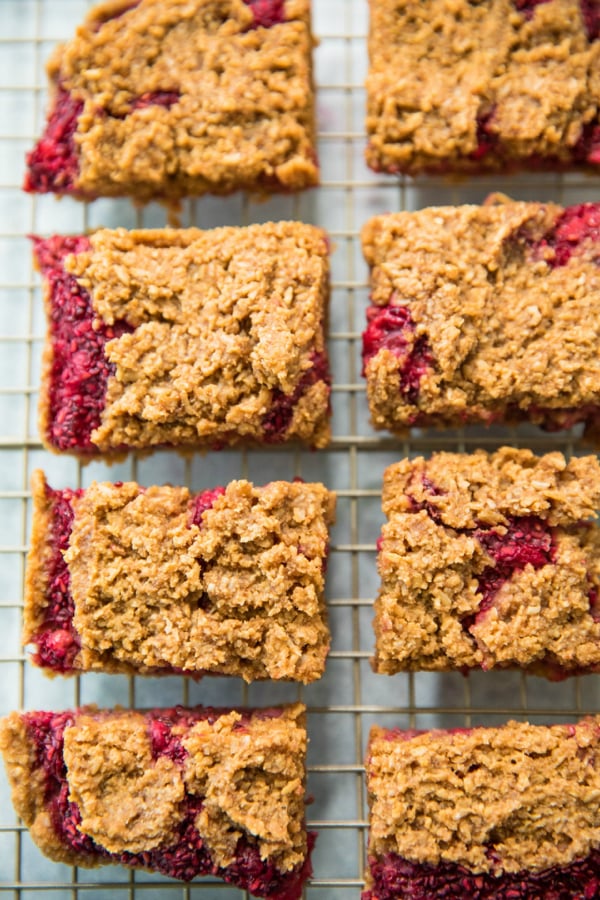
I’m loving Kim’s summery raspberry almond snack bars—perfect for picnics, hikes, road trips, or long days spent outside.
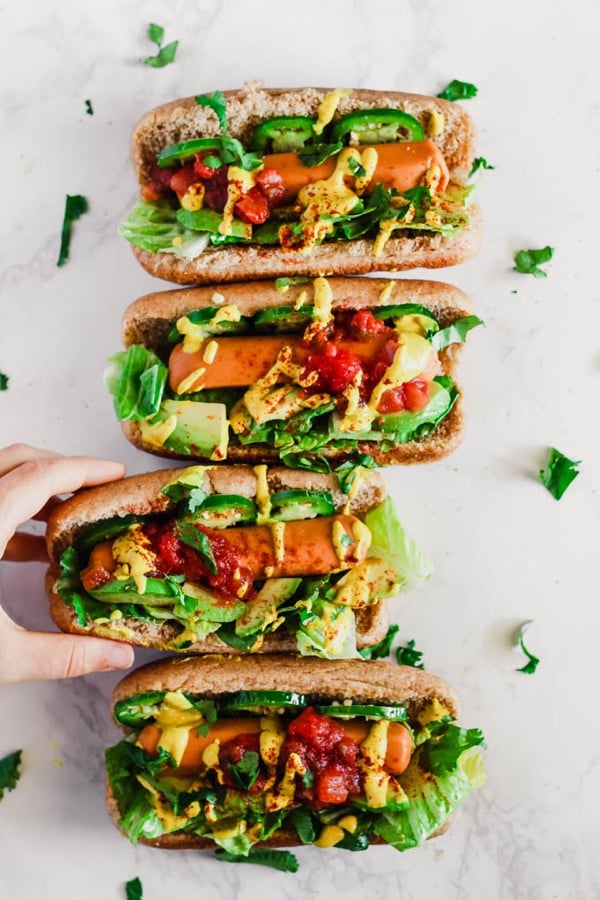
Emilie’s veggie dog game is seriously on point.
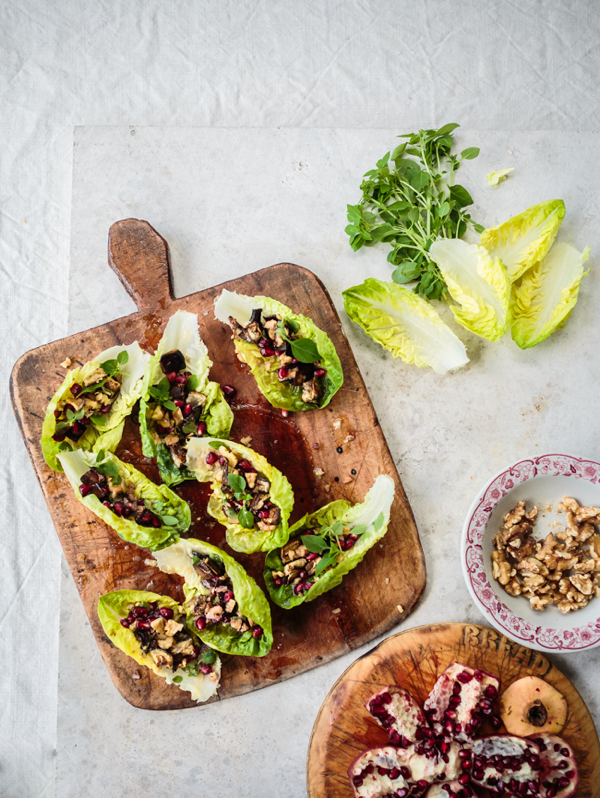
Refreshing eggplant and pomegranate lettuce cups from my friend Izy. Perfect for summery gatherings with friends!
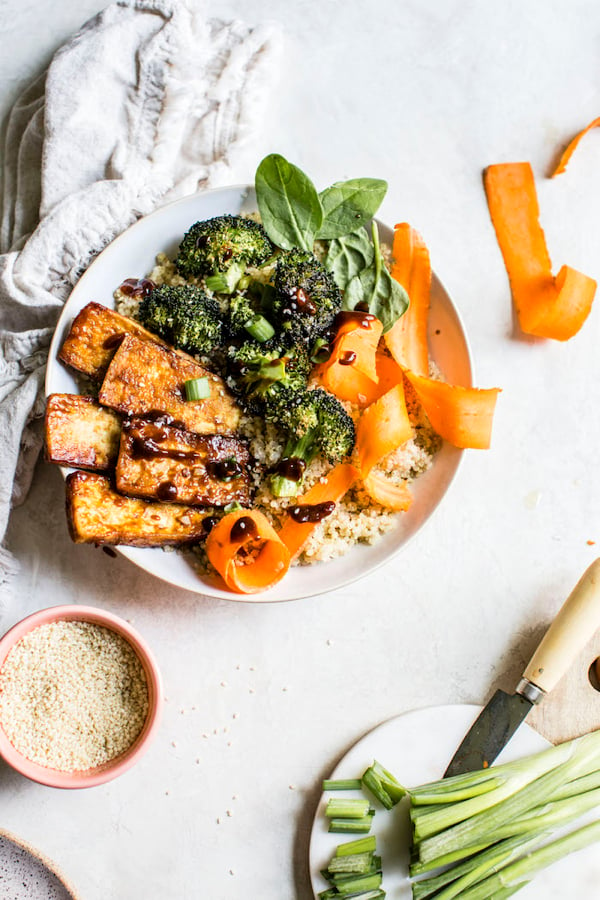
I’ve been revisiting a lot of the bowls from Power Plates lately, which means that I’ve got bowl recipes on the brain. I was excited to find Erin’s flavorful sesame tofu quinoa bowls.
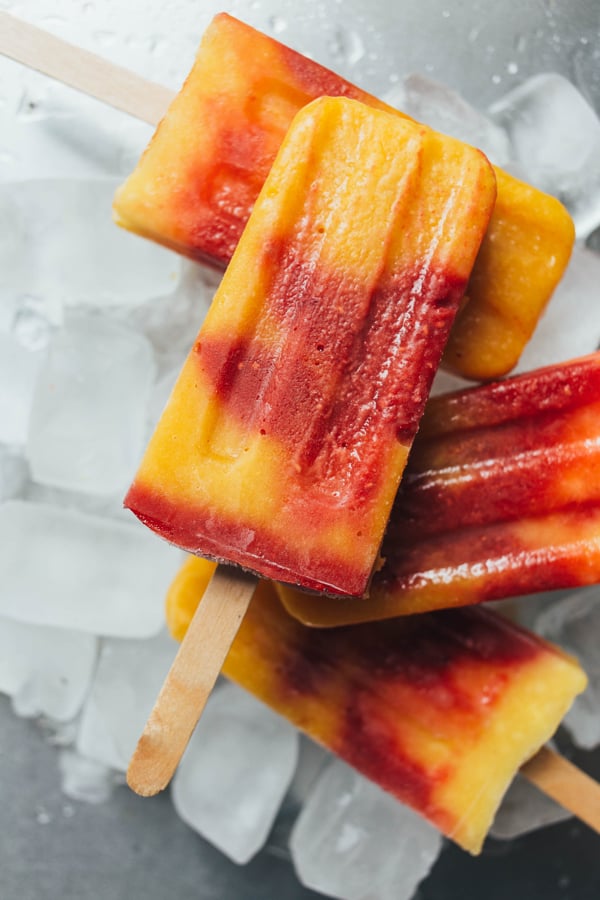
Finally, I can’t resist the beautiful colors of Sophie’s tie dye raspberry mango paletas (and I’m sure I wouldn’t be able to resist the flavors, either).
Reads
1. An interesting look at how brain imaging is elucidating the neuroscience of pain.
2. Boy, do I wish I’d had a tool like this when I was taking Orgo. Visualizing molecules and how they’d be oriented in three dimensions was my biggest challenge!
3. A sweet profile of Clara Cannucciari, who became a YouTube star at ninety-one years old with her show, Great Depression Cooking. The article turns a loving lens on Clara’s life story, the role of her grandson, Chris, in bringing her recipes to the world, and the power of the online world to help preserve culinary traditions.
4. I was intrigued by Laura Khoudari’s look at why the suggestion to “take a deep breath” isn’t always a helpful means of relaxing or easing for certain people with PTSD. Khoudari is a trauma informed coach and has really useful suggestions for alternative ways of getting grounded.
While I don’t have PTSD, I have found that paying attention to inhales and exhales can sometimes heighten or even trigger anxiety when I’m meditating. With the help of some good teachers, I’ve found other ways to anchor myself in meditation practice (or when I’m simply trying to relax), but it took a while to accept that breath focus isn’t always the way in. It’s nice to know that there are so many ways for different people to move into their bodies.
5. I loved Steven Petrow’s op-ed on the medicinal value of talismans, amulets, and cherished objects. He wisely frames the important roles that ritual and belief play in a person’s experience of illness, wellness, and the complicated passages in between.
Happy Sunday, friends. Before I go, I want to mention that I’m offering a giveaway for Wolf Gourmet’s new multifunction cooker on my Instagram feed right now. It’s a beautiful appliance, and if you love slow cooking as much as I do, check it out!
I’ll be back with a simple, savory breakfast recipe this week.
xo
The post Weekend Reading, 7.8.18 appeared first on The Full Helping.